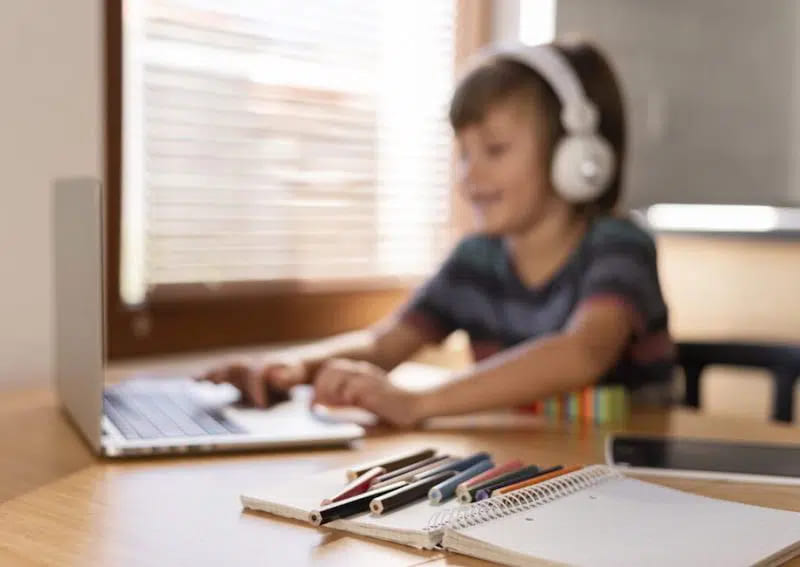Excited appeals are periodically published, which instead of investigating the relationship between young people and the internet, focus on the barbarization of our young people due to social media.
These are imprecise screams (a social network, like any tool, is neither good nor bad, it depends on the use made of it). And at the same time deresponsibilising (parents first must educate, dialogue and supervise, not punish or repress).
However, when an association like the FIMP (Italian Federation of Pediatricians) takes stock of the situation, and when the area of interest is the relationship between children (not young people in general) and the Internet, extreme attention must be paid.
The FIMP expressed its opinion on the exposure of young and very young people to digital during the XVII National Congress “And I will take care of you. Your Pediatrician is a safe haven”, which took place from 12 to 15 October in Giardini Naxos, in the province of Messina.
Let’s see what came out of the Congress.

The guide “Children and adolescents in a digital world”
During the four days of meetings, the guide “Children and adolescents in a digital world” was presentedas can be seen from a press release published on the association’s website on Monday 16 October.
The guide aims to clarify a crucial issue for families, which is digital. There is a lot of information available on the subject (especially online), not all with the same degree of scientificity. “For this reason FIMP has brought together a group of pediatricians and experts with the aim of developing a specific text that acts as an authoritative and above all useful guide in daily activity, which enables the professional to answer the questions that are increasingly parents and even teenagers address them on the topic of digital.”
The guide will be available in the coming months, but some stimuli were provided at the congress.
Children and the Internet
The general recommendations are few, clear and finally characterized by maximum balance.
Certainly, “a controlled, safe and conscious use of digital tools can help children develop visual-motor coordination and stimulate creativity and problem-solving ability.”
But this at least from the age of 9, in moderation and avoiding the use of social media.
Before that age, any relationship between children and the Internet is strongly inadvisable. In fact, “direct interactions with parents, peers and the world around them are fundamental, essential for healthy cognitive, emotional and relational development.”
Children and the Internet: the stages by age
During the presentation of the guide, Some registry stages have been identified that involve a different use of digital technologies.
The aim is to “support healthy growth and protect children and adolescents from psycho-social risks such as cyberbullying.”
The guide therefore says that before the age of 3 the child needs to build his own space-time references, so the use of screens should be avoided as much as possible.
From 3 to 6 years the child needs to discover all his sensory and manual possibilities. Therefore, playing with peers should be encouraged, avoiding personal smartphones or tablets.
From 6 to 9 yearsthe age at which the rules of the social game are discovered, it is always advisable to discourage the use of the internet.
E from 9 to 12 yearsi.e. the age at which the child begins to become independent from family references, “the web can represent a valid tool for exploring new contents suitable for his age, under the watchful eye of his parents, but it is suggested to avoid direct participation to social networks”.
The statements
Osama Al Jamal and Giovanni Cerimoniale, promoters of the FIMP guide to the use of digital technology, say: “The Guide developed by FIMP aims to be an easy-to-use tool for correct communication with familieshelping them to consciously manage their relationship with digital tools.
At the same time, however, it is important to underline that the use of the Internet and social networks has become an integral part of our way of communicating and relating to others, but cannot replace direct interactions with peers and families”.
Giuseppe Di Mauro, national secretary for scientific and ethical activities of the FIMP, adds: “The family pediatrician has a very important role in educating families on the correct use of the Internet and digital tools, which have a very significant impact on the development and psycho-physical well-being of children and adolescents.”
Finally he intervened Antonio D’Avino, national president of FIMP: “If it is true that new media, in particular social media, have now become part of the lives of our children, it is necessary to discourage their indiscriminate use: parents ask us for more support in this area and we Family Paediatricians are ready to offer our knowledge to guide and orient them in the best possible way.”















Leave a Reply
View Comments